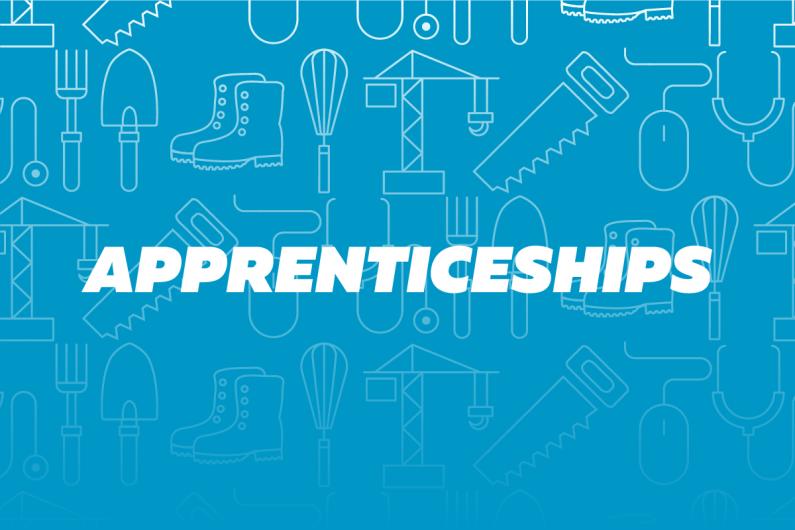Apprenticeships

Find out what New Zealand Apprenticeships involve, and who offers them.
What's on this page?
- What do New Zealand Apprenticeships involve?
- Can you do a New Zealand Apprenticeship?
- Benefits of New Zealand Apprenticeships
- Apprenticeship Boost supports employers to take on apprentices
- What qualification do you get on completing a New Zealand Apprenticeship?
- What it's like to be an electrical apprentice – video
- Find out more
What do New Zealand Apprenticeships involve?
With New Zealand Apprenticeships you learn skills relating to an occupation, such as building, engineering, hairdressing, barbering or beauty, agriculture or horticulture, tourism, sports and fitness.
As an apprentice, you:
- work for, and learn from, an employer who supports you through your apprenticeship
- complete a theoretical component with support from a tertiary education provider, including:
- practical, on-the-job assessments where you demonstrate your skills to an assessor (such as showing you can lay carpet)
- attending courses such as block courses, evening courses and day-release classes
- completing off-the-job assessments, such as written assignments.
Can you do a New Zealand Apprenticeship?
To become a New Zealand Apprentice you must be over 16. There's no upper age limit.
Each industry has different entry requirements, so check with the relevant provider.
You must be employed in the occupation you are training for.
Apprenticeship providers
Te Pūkenga and some private training establishments (PTEs) support work-based learning (including apprenticeship training).
The Tertiary Education Commission (TEC) provides a complete list of approved apprenticeships and providers in the New Zealand Apprenticeships Register.
Benefits of New Zealand Apprenticeships
Benefits of New Zealand Apprenticeships include:
- you start on the training minimum wage (employers often pay more as you become more skilled)
- you gain technical, practical skills
- you receive a Level 4 New Zealand certificate when you complete the apprenticeship, so you're then likely to be paid more and have better work opportunities.
- Employment NZ website - information about the training minimum wage
Support with costs of New Zealand Apprenticeships
If you’re doing tertiary study or training you may be eligible for the Fees Free initiative.
Apprenticeship Boost supports employers to take on apprentices
Apprenticeship Boost is a payment to help employers keep and take on new apprentices.
The payment is made directly to eligible employers by the Ministry of Social Development.
Employers may be eligible for payments for apprentices in their first year of training in a targeted occupation with skill shortages.
What qualification do you get on completing a New Zealand Apprenticeship?
When you complete your apprenticeship you receive a Level 4 New Zealand certificate in the area you studied. Examples include:
- New Zealand Certificate in Seafood Processing (Level 4)
- New Zealand Certificate in Automotive Electrical Engineering (Level 4).
What it's like to be an electrical apprentice – video
Opal Vickery, Nathan Graves and others talk about what it's like to be an electrical apprentice – 2.03 mins.
Opal Vickery: So my name is Opal. I am a qualified electrician. I work in the residential sphere for AB Electrical.
On a normal day, usually I’ll be up early in the morning, at our wholesaler, as soon as they open – that’s my kind of way to get into the environment, have a bit of banter, get my materials sorted for the day, it’s a kind of nice way to ease into it.
Nathan Graves: So when I started my apprenticeship, we did a two week block course where they taught us all the skills we needed, gave us a basic tool kit and just really taught us the fundamentals of being a good apprentice, being eager and having the right attitude from Day One
Jason Keremea: It’s amazing to have that extra support, it’s just so beneficial
Nathan: I’m learning so much from actually being able to be hands-on and everything I learn at night class, I can bring back here [on site] and fully understand it
Jason: The stuff that you learn, your eyes just become wide open, it’s just really exciting
Leon Mepsted: Week to week I’m with my tradesmen so I’m learning everything from them on-job, on hand, and then everything at night class is covering the theory side of it, understanding what I’m actually doing and why I’m doing this.
ETCO and my co-ordinator, they worry about my apprenticeship side of things.
Ben Davis-Young: We did two weeks down in Ramarama, you’d go in the classroom, learn it, then you’d go to the workshop and do what you just learnt, so I think it was pretty good.
It’s a support network, you’ve got co-ordinators, tutors, Switched On [an Employee Assistance Programmme which provides assistance when you need it], you don’t have to go through the worry of finding a job, and they want you to achieve your apprenticeship.
Jackson Whaanga: We go through all our health and safety, toolbox meeting, and then I get put with a team lead and we go and do mahi around the worksite, wherever it’s needed.
I always wanted to do the big job, from the industrial side, it always interested me a lot more than just domestic. So I’m based at Fonterra at the moment, so I’ve been running out cable along the ladder, been putting up new light fittings around the silos, just to get a bit of light source around the work area.
Yeah it’s good to get into the electrical trade.
Find out more
Updated 9 Dec 2024